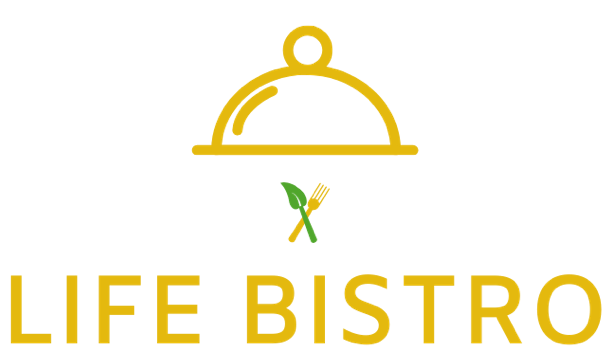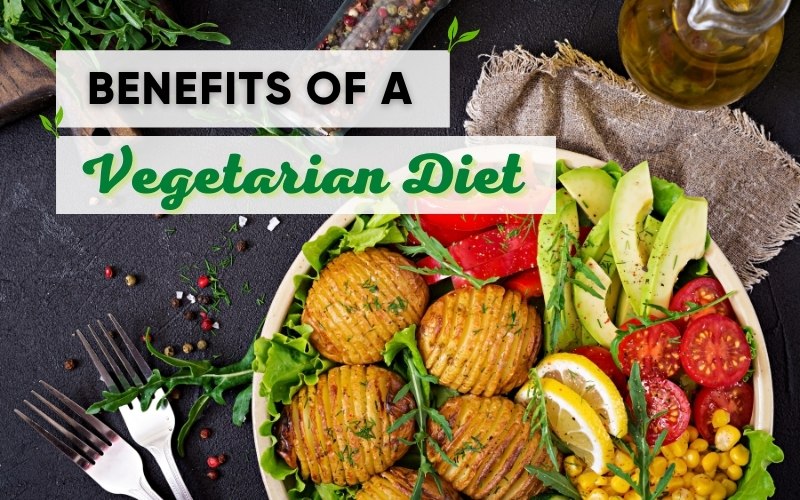A person who follows a vegetarian eating plan can expect a variety of health benefits as well as some risks. Trying to eat all plant-based meals can take some getting used to. It is a lifestyle choice that people consider for a variety of concerns like animal rights, religious reasons, and health problems. You might be looking out for animal welfare or be trying out a veggie-focused diet that lessens protein intake.
The number of new vegetarian food choices on blogs and delivery menus has made it easier to navigate your way around the mostly green pastures of this eating style preference.
Wondering what vegetarianism might have in store for you? This article discusses the health advantages as well as some possible risks to embracing the path of an herbivore.
What Is A Vegetarian Diet?

A vegetarian diet consists of meals that are made of plants. These open up a selection of vegetables, beans, grains, nuts, and seeds for these green thumbs to choose from.
There are, in truth, many ways to be vegetarian. Below are some of the most popular or well-known types of vegetarianism to help you choose or better understand these kinds of diets:
- Vegan: Meals only include plant-based food; no animal byproducts like eggs or dairy are included.
- Lacto-vegetarian: One can consume dairy products such as cheese, milk, yogurt, and butter alongside plant-based meals. You cannot eat meat, poultry, seafood, and eggs in this diet.
- Lacto-ovo-vegetarian: You can eat veggies, dairy, and eggs. All other food types such as seafood and meat are off the table.
- Pescatarian: In addition to food made from plants, Pescatarians can also choose to eat seafood. This is where they get lots of protein. On an individual note, pescatarians themselves can choose whether to eat dairy and eggs.
- Flexitarianism: Flexitarians mainly feast on plant-based foods; however, they can also eat meat, poultry, seafood, etc. when they see fit.
What Is A Meal Plan?
A meal plan involves weighing out different types of nutrients, vitamins, and minerals to create a well-balanced, tailor-fit list of foods you can eat for several days or months. There are many advantages to creating a meal plan, especially if you consult an expert. A study by Ducrot, et al. (2017) reveals that meal plans can result in improved diet quality, increased food variety, and fewer chances of obesity. On the more practical side, having a set menu for you to cook and eat can save you lots of time as well as lessen food waste.
Health Benefits of a Vegetarian Meal Plan
If you create a healthy vegetarian meal plan that ensures you get all the nutrients you need, many health benefits will follow. Here are some positive effects of going green:
Reduced Risk of Obesity
The research titled A plant-based diet for overweight and obesity prevention and treatment gave light to the differences between people who engage in plant-based diets (PBD) and those who don’t. Particularly, those who do PBDs have lower body mass indexes (BMI) than people who do non-PBDs.
PBDs encourage weight loss in the body and help manage obesity. Those who eat wholefood plants tend to eat fewer calories which leads to weight loss.
Reduced Risk for Heart Disease
Avoiding meat contributes to fewer chances of contracting heart disease for vegetarian meal plan users. It results in lower rates of hypertension, better cholesterol levels, and lower blood pressure.
Reduced Risk for Type 2 Diabetes
There are fewer cases of Type 2 Diabetes in vegetarians. These kinds of diets are rich in vegetables and whole grains which results in improved blood sugar levels and control along with better insulin response.
Risks
Plant-based meal plans generally fulfill all of your nutritional needs; however, this might not be the case at all times. You need to know how to make up for the vitamins and minerals that you would otherwise have gotten from meat, seafood, animal byproducts, etc. You cannot just decide to stop meat altogether without making up for all the value they provide to nourish your body.
As such, you will need to visit your doctor or nutritionist to ask if you have any deficiencies or risks to account for before proceeding with your meal plan.
Making Your Vegetarian Meal Plan

Before embarking on your vegetarian diet, check your meal plan again to see if these nutrients are included. Most of these vitamins and nutrients, luckily, can be incorporated into diets as they are isolated into the form of pills and powder to ensure vegetarians get the nutrients they require.
- Vitamin B-12: This is usually only found in animal products so vegetarian meals might not be able to cut it. You need to intentionally use fortified soy products and supplements to get this vitamin.
- Calcium and vitamin D: Found in soy products, cereals, and juices, get some for strong bones and muscles.
- Iron and zinc: Stock up on legumes, nuts, soy products, and wheat germ for your iron and zinc fix.
- Protein: Beans, lentils, nuts, and whole grains are good sources for you.
- Iodine: Your thyroid uses iodine to break down nutrients for your body. You will be glad if you grab some cruciferous vegetables, soybeans, and sweet potatoes for your meal plan.
- Omega-3 fatty acids: Tuna might not be in your diet anymore so make sure you have enough walnuts, soy oil, canola oil, soybeans, and ground flaxseed.
Key Takeaways
Surely if you are thinking of going vegetarian you might have some steps to take or some burning questions to ask by now. Planning a vegetarian meal plan will bring with it numerous gifts to your health; however, it can also bring some risks especially if you don’t get all the nutrients you need. Weighing all the factors of switching to a vegetarian diet is vital to making a well-rounded and competent decision. Will you make the switch?


